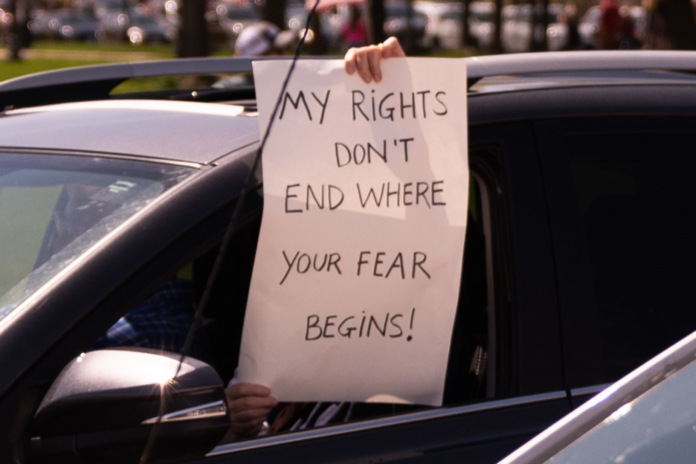Coronavirus has grabbed Minnesota by the throat, idling the economy and halting missions widely regarded as critical. To wit, breast cancer screenings ceased several weeks ago, along with related surgeries including mastectomies, the operation that removes cancerous breasts. When the order came to stop elective surgeries, previously scheduled, non-elective mastectomies ended, pending formulation of a plan to resume.
Registered Nurse Susan Munkeby, who works as a breast cancer screener at a local hospital, said she was told the surgeries were cancelled to conserve PPEs – personal protective equipment – for medical teams dealing with immediate emergencies, including coronavirus cases.
Susan is in her second two-week furlough, awaiting a plan to return to work. It’s unclear when that may occur, so she continues to be on-call. Medical priorities are not addressed in the decision to stop screenings and scheduled operations. Currently, staff surgeons are reviewing individual cases on patients who were screened for possible breast cancer before the shutdown. Since the shutdown there have been no new screenings.
In her role as cancer nurse, Susan helps with new patient diagnoses. “This is the crazy part. When all of this started, we cancelled screenings. Patient surgeries were cancelled (for women who already had a pre-existing physician-ordered mastectomy scheduled to remove cancerous masses). I didn’t realize that breast surgeries are considered non-essential.”
“We had patients (crying) in the office because they can’t get a scheduled surgery done. They’re being referred to oncology.”
She met with a patient, a mother of four who was scheduled for a surgery that was superseded. “She’s sitting there with cancer in her body, and she can’t get surgery. But, you can get an abortion.”
She worries about the women scheduled for yearly appointments who are not being screened now because she knows that some of these patients will test positive for breast cancer. “Now that we’re not doing screenings, we’re not catching all those with cancer. Under the current shutdown order, screenings have been halted “not just at my breast center,” but at all facilities.
How many deferred cases might that be? At her center alone, Susan estimates on an average day, her team screened some 30 women for signs of breast cancer. Possibly five to nine of the women in that group would be called back for additional imaging. Of those, about two to three patients will have a cancer diagnosis,” she said, emphasizing that those numbers are estimates only. Before shutdown at the end of March, screenings occurred on five weekdays.
“You think about this virus that’s attacking certain populations – mainly, the elderly. Is the potential from coronavirus more important than dying from cancer?
“You can get still an abortion but can’t get a mastectomy.”
Other medical ramifications of the widescale shutdown are generalized fears that prevent people with serious medical conditions from seeking help in hospitals. Fear is the hallmark of this particular instance.
“We let this virus ruin our economy. We sure didn’t do that for H1N1 in 2009. Is it a coincidence that (reports of ) flu deaths and other causes have dropped? Why are we handling this one so differently?
“The entire economy should not be shut down. What are the mental health issues? There are suicides, people losing their businesses. At a certain point, it becomes a personal responsibility. It’s got to be up to you. If you need to protect yourself, do it. The rest of the people should be out working,” she said.
“The rest of us need to go back to work.”

















